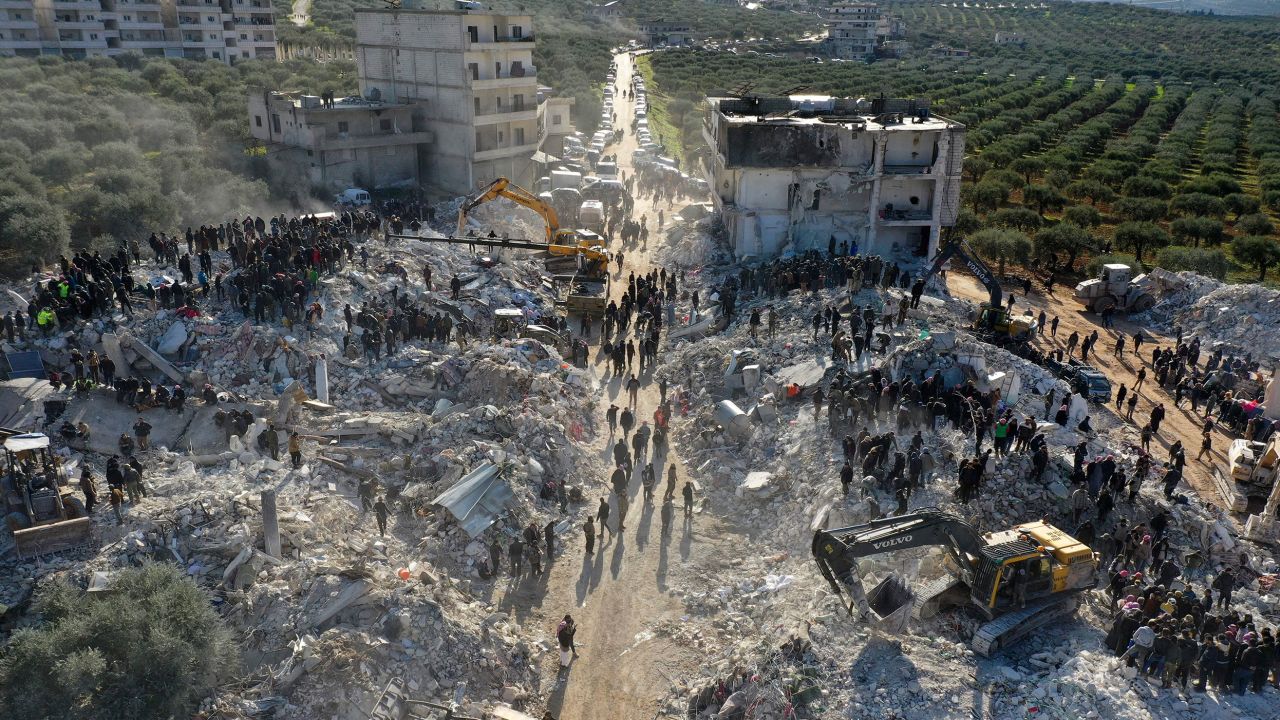At approximately 4 AM on Monday, February 7, a massive 7.8 magnitude earthquake hit southern Turkey and Northern Syria, causing massive destruction, and leaving thousands killed. At the time of writing, over 21,000 people have been confirmed dead between the two countries.
The earthquake is believed to have erased entire towns and cities from the map and caused unfathomable material and psychological damage.
As several countries have rushed to provide aid and relief efforts, one issue has been raised by many: the effect of sanctions on Syria.
On February 9, the United States (US) Treasury issued Syria a general license that suspends sanctions for a period of 180 days in light of the country’s dire need of aid and relief following the devastating earthquake. Prior to that, much debate had risen on whether the sanctions were acting as a barrier to the country’s receival of aid, dividing much of the discourse online into two.
Due to the ongoing civil war, Syria is divided. Most of the country is under the control of the government of President Bashar Al Assad, while the northwest is divided between de-facto Turkish control and Hayat Tahrir Al Sham, an Islamist rebel group with ties to Al Qaeda, and the northeast is largely controlled by United States-backed Kurdish-majority groups.
Due to the human rights violations committed by the Assad government in the 2011 protests and ensuing civil war, heavy sanctions have been imposed by the US, the European Union, and other international bodies. Western governments and international groups are hesitant when it comes to giving aid directly through the Syrian government, as they worry it will fall with and be syphoned to the wrong hands.
However, the earthquake awakened calls from many around the world to lift sanctions off Syria for it to receive the required aid. Many have argued that sanctions are the reason why Turkey is receiving much more international support than Syria, but the true reasons behind this are much more complicated.
Are sanctions a barrier for aid?
Many analysts and researchers have argued that sanctions in Syria have had a highly damaging effect on the population while doing little to weaken the regime, but the aid sector has been, overall, one of the least affected. US and EU sanctions explicitly allow for humanitarian aid to reach the country, which is why we have seen several countries, such as allies Russia and Iran but also the UAE, Lebanon, Egypt, Algeria, and many others, able to directly send support and rescue teams to the country.
Nevertheless, sanctions on other areas, such as fuel trade or banning companies from doing business in the country have had negative effects that only exacerbate the struggles faced by people following the earthquake. Blocking of bank transfers also present an additional challenge, as they make sending funds to regime-held areas very difficult.
The US Treasury’s general license provides a much-needed relief for affected areas controlled by the government, as the Opposition-held northwest has only just now started receiving international support. The small piece of land is only accessible through the Bab Al Hawa crossing on the border between Syria and Turkey, which has become more difficult to go through as the earthquake damaged roads leading to it. The UN is only allowed to deliver aid through this crossing due to the Russian veto at the United Nations Security Council, which also only allows the mandate to be renewed every six months.
However, the Syrian government wants to have aid to the Opposition-held northwest go through its strongholds – a task many states do not trust it with. It has been accused in the past of withholding aid sent to it or to UN bodies operating in its areas. That does not, however, deny the effect of general sanctions on the population, who are left to feel punished for the crimes of a regime they did not choose.
Overall, when discussing sanctions, nuance is essential. While they do not, on paper, affect aid, sanctions discourage companies and countries from engaging with Syria, and they have hampered reconstruction efforts after major battles in the civil war. As mentioned by Syrian analyst Karam Shaar, economic sanctions are also some of the reasons why Syrians cannot access basic necessities.
The effects of sanctions may not be as devastating as the Syrian government and its allies are currently making them out to be, but they are still a serious problem to be tackled. Regardless of them, however, the northwest remains the most vulnerable area right now, blocked off from the world from every corner except the very fragile Bab Al Hawa crossing. The government must not be absolved of its crimes and its role in the destruction of Syria by hiding behind sanctions, but the latter must also not be treated as an angelic force


